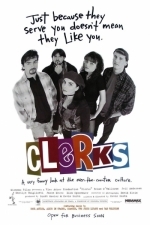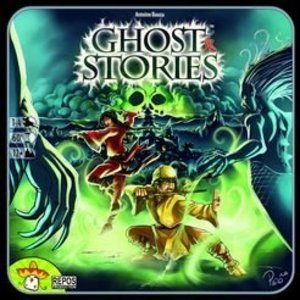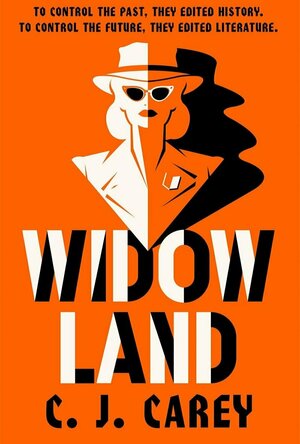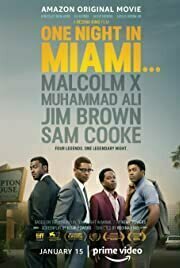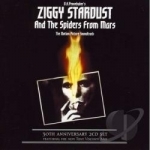Connor Sheffield (293 KP) rated Clerks (1994) in Movies
Apr 22, 2017
Kevin Smith is an inspiration and this film is the start of it all. Clerks is a very simple film that manages to be entertaining and hilarious. The concept is this; Dante Hicks (Brian O'Halloran) is asked to work on his day off, and ends up spending his day working in his dead end job behind the counter at a convenience store in New Jersey.
I should mention that this film is shot on a Arriflex 16 SR2 which means the film is in black and white.
Working with Dante is his best friend, Randal Graves, who isn't exactly a big help around the store or with personal problems. If anything, he makes matters worse because he almost never takes anything seriously.
The humour in this film is found through discussions of films such as Star Wars, discussions about sex, and about the customers of course. Describing it in text doesn't do it justice so you'll just have to watch it if I have in anyway peaked your interest.
This film was the introduction to what is known as the 'View Askewniverse' which is a series of films by Kevin Smith which are all connected via characters and events. However, the most important introductions from this film are the characters of the now famous duo, Jay and Silent Bob played by Jason Mewes and Kevin Smith. Yes, the same Kevin Smith who wrote and Directed the Movie. These two are the only two characters to appear in every movie in the View Askewniverse and usually help move the film in the right direction.
Overall, Clerks has to be one of my favourite movies of all time and once you watch the Askewniverse, it's easy to understand why, because no only is it smart and hilarious, but you have to appreciate that this started a series of other great indie films that made Kevin Smith the funny man he is today.

Barometer Plus - Altimeter and Barometer
Weather and Navigation
App
Barometer Plus app measures air pressure and altitude using the built-in barometric pressure sensor...

PicsPlay Pro
Photo & Video
App
Spotlighted on Forbes as one of "Best Photo Apps For Tablets" by Amadou Diallo, July 3rd, 2013 ...
Matthew Krueger (10051 KP) rated Ghost Stories in Tabletop Games
Jul 28, 2020 (Updated Jul 30, 2020)
Gameplay:
Each Player represents a Taoist monk working together with the others to fight off waves of ghosts.
The players, using teamwork, will have to exorcise the ghosts that appear during the course of the game. At the beginning of his turn, a player brings a ghost into play and places it on a free spot, and more than one can come in at the same time. The ghosts all have abilities of their own – some affecting the Taoists and their powers, some causing the active player to roll the curse die for a random effect, and others haunting the villager tiles and blocking that tile's special action. On his turn, a Taoist can move on a tile in order to exorcise adjacent ghosts or to benefit from the villager living on the tile, providing it is not haunted. Each tile of the village allows the players to benefit from a different bonus. With the cemetery, for example, Taoists can bring a dead Taoist back to life, while the herbalist allows to recover spent Tao tokens, etc. It will also be possible to get traps or move ghosts or unhaunt other village tiles.
To exorcise a ghost, the Taoist rolls three Tao dice with different colors: red, blue, green, yellow, black, and white. If the result of the roll matches the color(s) of the ghost or incarnation of Wu-Feng, the exorcism succeeds. The white result is a wild color that can be used as any color. For example, to exorcise a green ghost with 3 resistance, you need to roll three green, three white, or a combination of both. If your die rolls fall short, you can also use Tao tokens that match the color in addition to your roll. You may choose to use these after your roll. Taoists gain these tokens by using certain village tiles or by exorcising certain ghosts. One of the Taoists has a power that allows him to receive such a token once per turn.
To win, the players must defeat the incarnation of Wu-Feng, a boss who arrives at the end of the game. There are also harder difficulty levels that add more incarnations of Wu-Feng, in which to win, you must defeat all of them.
There are many more ways to lose, however. The players lose if three of the village's tiles are haunted, if the draw pile is emptied while the incarnation of Wu-Feng is still in play, or if all the priests are dead.
It is hard game but the strategy to this game is excellent cause you have to think about your moves and what to do next. That and the clock is ticking down to one of the ten Wu-Feng Minions. Also if 3 village spaces get crushed than you lose. Also the luck of the dice and the cards. The strategy is ten fold. Its hard but a excellent game and a must play game. Buy it if you havent already cause its a must. If you want to learn more or see a runthrough of the game go to BoardGameGeek, Rahdo Runthroughs or Dice Tower Reviews.
Even though there’s a huge shortage of young men (they’ve been ‘shipped off’ to the rest of occupied Europe to ‘work’) and women greatly outnumber men, women are divided into categories, or castes. These depend on their age, heritage, reproductive status and physical characteristics, and each category is named after a significant woman in Hitlers life. Rose is a Geli, one of the elite. Young, beautiful, and most importantly, fertile.
I thoroughly enjoyed this and read it far too quickly. It had a black and white, 1950’s movie atmosphere about it, and I could easily picture the people and scenes in my head. It brought to mind The Man in the High Castle with regards to Occupation, and 1984 with regards to feeling as though you’re constantly watched - as well as the people being told how to react, think and live. This was especially evident in Rose’s job: she rewrites classics so that they’re in line with the regimes ideals: so no independent, strong females, and all the male leads are changed to Sturmbannführer (at least!).
The drudgery of everyday life made me think of how I envisaged life in the GDR - as well as only allowing state sanctioned literature, there was only one radio channel in Grand Alliance Britain, with some brave people listening to illegal foreign radio stations, knowing that this could result in extreme punishment.
When Rose goes to Widowland near Oxford (there are a few throughout the country) to find the source of a potential rebellion, she’s shocked to see older women living in abject poverty, only permitted to eat a subsistence diet and work menial jobs. But these women are intelligent, and they’re not happy in their state regulated lives. Between her reading of classic books and meeting these women, Rose begins to see what’s wrong with the world she has been living in, and this dawning realisation is so well described. We see how reading ‘subversive’ classics seems to get under her skin, and how she realises that the treatment of women is wrong in this Grand Alliance.
I could go on and on. I raced through this book, and I loved the ending, which came far too quickly!
Many thanks to Quercus for my copy of this book through NetGalley.
Lenard (726 KP) rated One Night in Miami (2020) in Movies
Jan 9, 2021
Like another recent film, the path is a choice between making changes within the system, like Sam Cooke and Jim Brown have attempted, or to change the system from the outside, like Malcolm and Clay. Both paths have their advantages, and both are also deadly. Within a year, both Malcolm and Cooke would be dead. The movie based on a play finds ways from each character to learn from the others by pairing them off in various combinations (Malcolm-Cooke, Brown-Clay, Cooke-Clay, Malcolm-Brown, Malcolm-Clay, Cooke-Brown). The main antagonism takes place between Cooke and Malcolm. Cooke sees Malcolm as a militant who is creating sowing seeds of fear in the eyes of "America" and Malcolm sees Cooke as a Stepin Fetchit with a huge amount of talent wasted playing by the rules. Cooke shows Malcolm that he is quietly taking control while Malcolm gives Cooke the spark to sing for civil rights for the less fortunate members of black society. Malcolm also begins to see how his actions have hurt his brothers by grouping all members of one race together similar to the way whites do not distinguish between black individuals. The movie never shies away from shading each hero with flaws.
Malcolm may be paranoid as evidenced by a couple scenes where he sees people on his trail who may or may not be real. Under a lot of pressure to break from his organization, Malcolm sees his staff betraying him to the feds who have been investigating him since he first started speaking. The whole subplot humanizes a man who many view as dangerous to the world. Jim Brown is also seen as a hero to most. He broke records and is about to conquer the film industry. Maybe they are using him, but he is using them to shine a light on the inequality of the races.
Lastly, one scene in the movie is a highlight. It is not in Miami, but in Boston. It shows how one man can turn a riot into a celebration of joy. With the main road blocked, a man of great talent can turn adversity into victory using his wits and his voice.
The Oxford Companion to Cheese
Mateo Kehler and Catherine Donnelly
Book
The discovery of cheese is a narrative at least 8,000 years old, dating back to the Neolithic era....

Pinball Arcade Plus
Games
App
Winner of the Best Mobile Game of 2012 on G4TV! Pinball Arcade by FarSight Studios features exact...
Joe Elliott recommended Ziggy Stardust and the Spiders from Mars: The Motion Picture Soundtrack by David Bowie in Music (curated)

Visage Lab perfect face tune app & beauty camera
Photo & Video and Entertainment
App
Visage Lab is a professional beauty laboratory for your facial photos. Remove pimples and wrinkles,...
